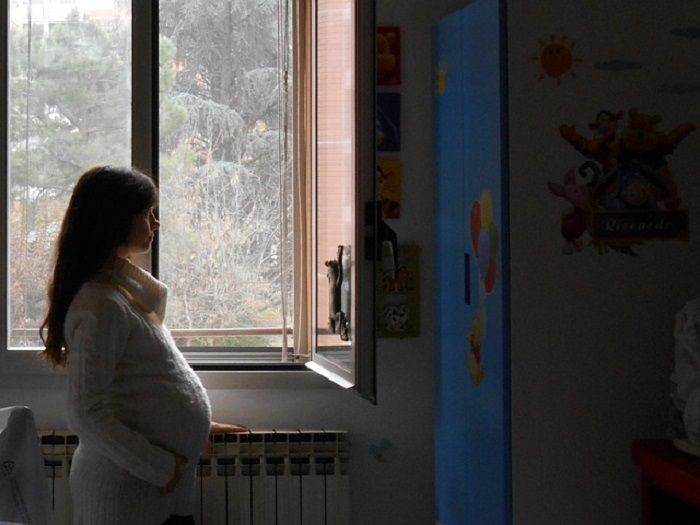Women's Mental Health Disorders, Like Depression And Anxiety, May Negatively Affect Chances Of IVF Success

New research published in Fertility and Sterility suggests depression and anxiety may reduce a woman’s chance of having a baby through in vitro fertilization (IVF).
Antidepressant use, especially selective serotonin re-uptake inhibitors (SSRIs), has increased by 400 percent over the last two to three decades in the U.S., according to the Centers for Disease Control and Prevention — about one in 10 Americans use them. Yet, little is known about the effect antidepressants have on fertility and the ability to conceive. Researchers from the Karolinska Institutet in Sweden aimed to see if there was a relationship between depression and IVF success.
They extracted data on all IVF procedures performed in Sweden from 2007 and onward from the Swedish Quality Register of Assisted Reproduction, and linked it to information on depression, anxiety, and antidepressant prescription dispensations from the nationwide Swedish Patient and Prescribed Drug Registers. The results included more than 23,000 women, which researchers believe is the largest sample pulled together to assess the association between depression, anxiety and antidepressants and the outcome of IVF.
In the end, 4.4 percent of women were diagnosed with depression and anxiety within two years before the start of their first IVF cycle and/or were taking antidepressants in the six months prior to their first cycle. And when researchers compared the rates of pregnancy, live birth and miscarriage, they found women with depression and anxiety had lower rates of pregnancy and live birth "compared to women who did not suffer from these conditions or take antidepressants before beginning their IVF treatment," first author Carolyn Cesta, doctoral student at the department of medical epidemiology and biostatistics, said in statement.
In the large group of women taking SSRIs, researchers found no difference in pregnancy or live birth rates following IVF treatment. But in those who took antidepressants other than SSRIs, which can signal a more complex case of depression and anxiety, women had reduced odds of pregnancy and live birth as well as an increased risk for miscarriage following their IVF treatment.
Interestingly, if women declined to take antidepressants, they had a lower chance of pregnancy and live birth. This suggests that not taking antidepressants to treat anxiety and depression could adversely impact the IVF process and outcomes, too.
"Taken together, these results indicate that the depression and anxiety diagnoses may be the underlying factor leading to lower pregnancy and live birth rates in these women," said Anastasia Nyman Iliadou, the study’s principal investigator.
Researchers believe these findings could have implications for both women struggling to conceive and women with depression or anxiety who may be planning to undergo fertility treatment.
That said, researchers warn that the study was not randomized and their results "could also be explained by unmeasured lifestyle and/or genetic factors associated with depression and anxiety."
Until there's more conclusive evidence, The National Infertility Association recommends women who are trying to conceive who have symptoms of depression should speak to their doctor about their antidepressant medication and possible alternatives to treating their symptoms. If women are already taking medication before they resort to IVF, they should speak to a psychiatrist or other mental health professional about the pros and cons of continuing their regimen throughout IVF cycles versus going off them altogether.
Source: Cesta C, Viktorin A, Olsson H, et al. Depression, Anxiety, and antidepressant Treatment in Women: Association with In Vitro Fertilization Outcome. Fertility and Sterility. 2016.
Published by Medicaldaily.com



























